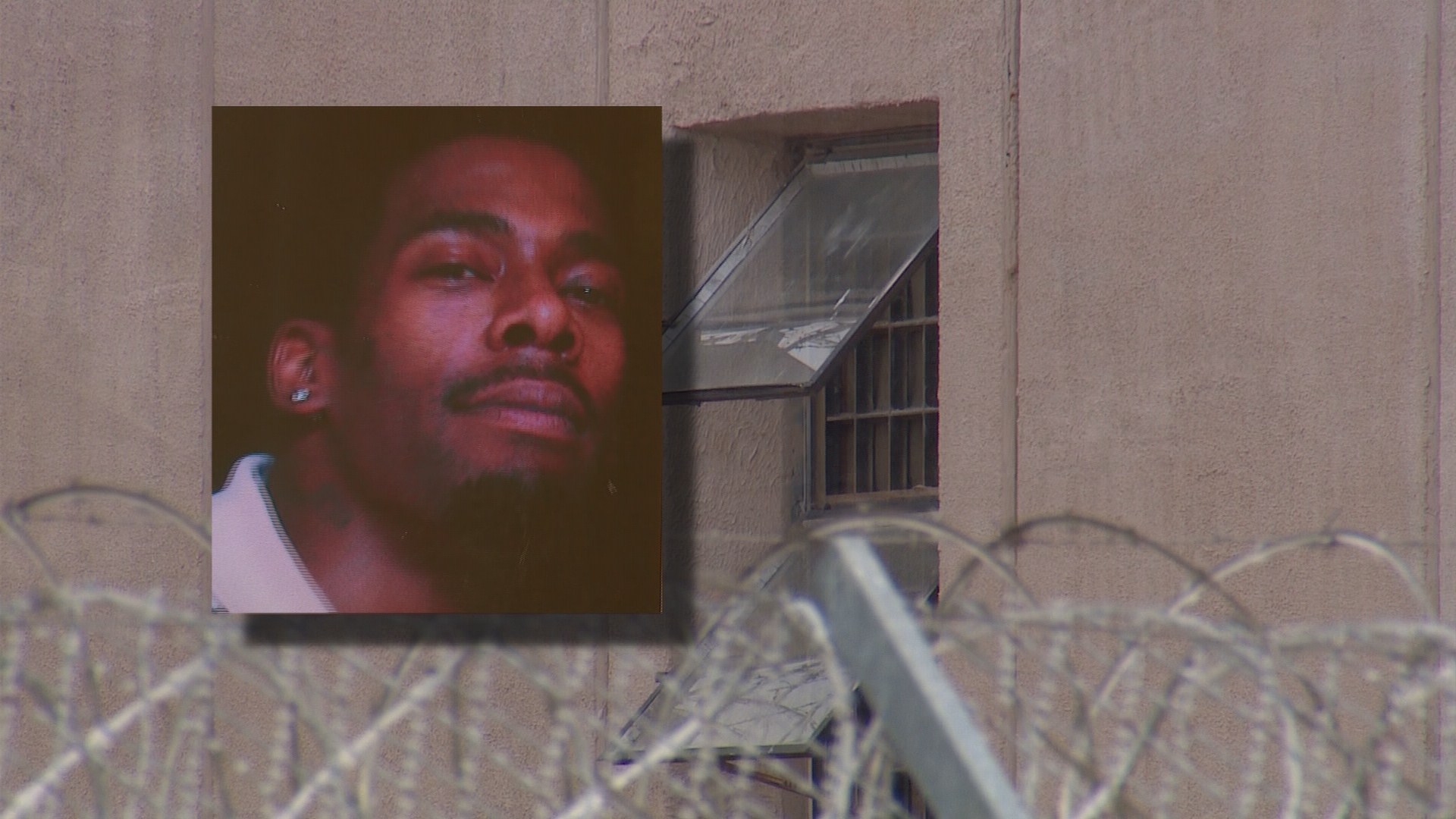News 8 Investigates
DALLAS – A North Texas family says the Texas prison system is hiding the truth about the death of their loved one.
Curtis Garland, Jr. of Dallas died last year in an East Texas prison following an asthma attack, but fellow inmates are telling a disturbing tale of a man who suffered for hours while begging for his life.
When Garland was sentenced to 12 years in prison in 2012 for family violence, he was prepared to serve his time. But as a severe asthmatic, surviving in the un-air conditioned Beto Unit in humid East Texas, Garland would require constant breathing treatments and medical attention.
On June 10 of last year, Garland's asthma flared up. He was taken to the prison clinic, where he was given a breathing treatment and released. Two weeks later, on June 23, he had another severe attack. Garland's breathing got progressively worse and by 10:35 p.m. that night, according to his autopsy, "advanced cardiac life support measures were initiated."
He was transferred to a local hospital, where he was pronounced dead. Garland's mother got the news over the phone from the prison Chaplain.
"He said, 'Ma'am, I'm sorry to tell you that your son is deceased,'" Sandra Pinchback said. "I couldn't hear anything else because the phone just went haywire, like, no, no, no."
Dealing with the grief was hard enough. She says trying to get details of her son's death was even harder.
"We never talked to the Warden, He wouldn't speak," Pinchback said.
But in the weeks that followed, mail began arriving at the family home. Letters from inmates, one after the other, told a story that stunned the family and friends.
All of them alleging Curtis Garland Jr. died a horrible death spanning the course of six hours.
According to one inmate, "At approximately 4:20 pm, I spoke with an officer and told him that Garland couldn't breathe and needed to go to the infirmary."
The inmate said the officer "never called."
![Dimitri Dube, family attorney [ID=72784238] [ID=72784238]](/Portals/_default/Skins/PrestoLegacy/CommonCss/images/pullquote.jpg) At 9 p.m., another inmate said, "I noticed Curtis was having a hard time breathing. I told him he needed to get to the infirmary as soon as possible."
At 9 p.m., another inmate said, "I noticed Curtis was having a hard time breathing. I told him he needed to get to the infirmary as soon as possible."
Curtis told him the nurse "refused to see and treat him."
An hour later, another inmate wrote, "Curtis was by the fan. He was trying to get some air. Curtis said he felt like was going to die."
At 10:30 p.m., still another inmate wrote, "I saw Curtis leaning on the fan, trying to catch his breath. I heard someone yell that Curtis needed help and fast. The officer said [...] 'it can wait'. Everyone involved was screaming and desperately begging the hallway officer to open the gate."
![635787371942129731-0924-jail-death-4[ID=72784016] ID=72784016](http://cdn.tegna-tv.com/-mm-/076f62dad41e0d2559b66a32e02f9e0ef3fee3fc/c=238-0-1670-1077&r=115x86/local/-/media/2015/09/25/WFAA/WFAA/635787371942129731-0924-jail-death-4.JPG)
Former inmate Marchello Faulker, who was with Garland as he died, recalls the final moments.
"And I laid him there and I said, 'Man, you need your asthma inhaler,'" Faulkner said. "He said he couldn't breathe, man, and he was turning purple all over."
Faulkner said that while the guards were telling him to get away, Garland was dying in his arms.
"He said 'Cho, I'm fixing to die, man,' and I said, 'Man, I don't know what to do,'" Faulkner recalled. "One side of me was telling me to take him [to the clinic,] but I didn't want to get in trouble."
It's haunting testimony that changes everything about what the family was willing to accept; the first real accounting for Curtis' death.
"As many asthma attacks as he had, I said the good Lord was tired of him suffering," said Curtis Garland, Sr. "But I did not know that they made him suffer. You see, they made him suffer. They didn't have to do it."
Cory Session with the Innocence Project of Texas shared the family's pain. His brother, Tim, was wrongly convicted and exonerated, but only after he too died in prison, of an asthma attack.
"The state has a duty to prosecute, but it doesn't have a duty to persecute," Session said. "This young man was persecuted in prison by being denied his medication."
And that denial of medication is why the family has filed a federal lawsuit against the warden, his staff, and the State of Texas.
"His medical need could not have been more serious, and they could not have ignored his medical need any more," said Dimitri Dube, the Garland's attorney.
Prison officials have declined to answer questions, saying it's their policy not to comment on pending litigation, nor will they talk about whether Garland's death was investigated.
Former inmate Faulkner says an investigation is warranted, especially because he believes the truth has been covered up.
"It took these people 30-plus minutes to get down and help this man out, and he laid down and died there in the hallway, and they tried to say that 'No, he died at the hospital,'" Faulkner said. "No. Y'all killed this man."
Garland's family also is requesting a full investigation. They feel Curtis was paying his debt to society. His penalty was 12 years, not death.
"I understand that they are criminals, I understand that they did a crime," said sister Uvonda. "But I don't understand you playing God. I don't. I do not."
The incident was so disturbing, 44 inmates signed a petition, calling for an investigation, willing to testify, and willing to risk retribution so the truth about Garland's death would come out.
Texas prison officials have yet to respond.


